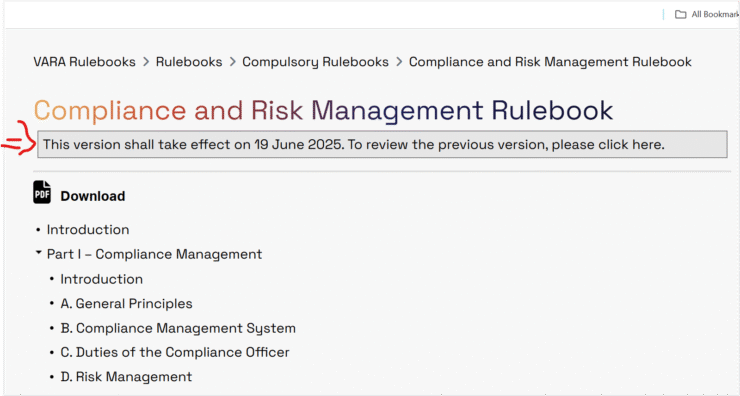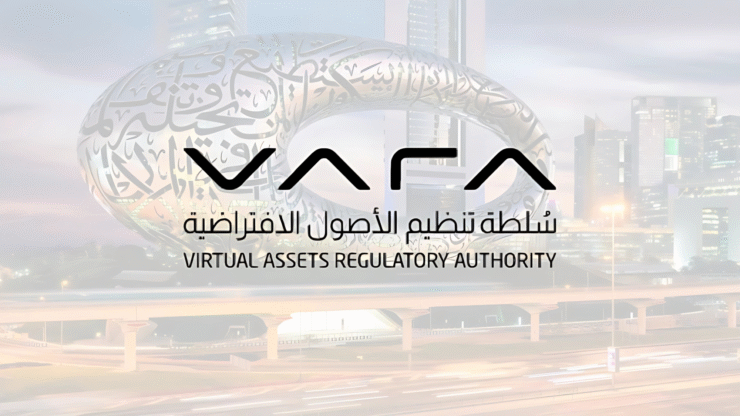Dubai’s Virtual Assets Regulatory Authority (VARA) has rolled out a sweeping update to its crypto regulatory framework, giving all licensed digital asset firms until June 19, 2025, to fully align with a stricter set of standards designed to strengthen oversight and reduce compliance ambiguity.
Unveiled on May 19, the revised Rulebooks—dubbed Version 2.0—mark a key step in VARA’s effort to tighten controls across the growing virtual asset sector. The updated framework enhances risk management measures for activities like margin trading and token distribution, while also standardizing definitions for critical terms such as “collateral wallet arrangements,” “client assets,” and “qualified custodians.”

The authority emphasized that these changes are intended to harmonize rules across all licensed virtual asset activities and bring Dubai’s crypto oversight closer in line with global regulatory norms. The 30-day transition window is meant to provide Virtual Asset Service Providers (VASPs) with adequate time to understand and implement the revised obligations.
In the coming weeks, VARA has committed to active engagement with licensed firms to support a smooth transition into compliance. The initiative reflects the emirate’s ongoing mission to establish itself as a regulated, transparent, and globally competitive hub for virtual asset innovation.
VARA Unifies Oversight Across Crypto Business Functions
Dubai’s Virtual Assets Regulatory Authority has expanded its supervisory reach across a wide range of crypto services as part of the newly released Rulebook Version 2.0. These enhancements aim to unify oversight practices and reduce regulatory ambiguity for licensed operators.
The updates apply to multiple regulated activities, including advisory services, broker-dealing, exchanges, custody, lending and borrowing, virtual asset management, investment services, and settlement functions. VARA noted that the changes are intended to streamline compliance expectations—particularly in cases where regulatory responsibilities may overlap.
A VARA spokesperson told Cointelegraph that the revised Rulebooks define foundational compliance terms with greater clarity, including “client assets,” “qualified custodians,” and “collateral requirements.” This, they added, is designed to create consistency and reduce friction for firms operating across several business lines.
By harmonizing definitions and compliance expectations, VARA aims to support better risk governance and facilitate smoother operations for crypto businesses navigating complex regulatory terrain.
Tighter Rules on Leverage, Token Distribution, and Marketing
VARA has also introduced stronger controls around margin trading, imposing tighter leverage thresholds and stricter requirements for how platforms manage collateral and monitor customer exposure.
A VARA spokesperson confirmed that the new rules mandate lower leverage caps, clearer collateral frameworks, and expanded oversight duties for licensed providers. These measures are aimed at reducing systemic risk from high-leverage positions that can trigger liquidations during volatile market events.
“Margin trading can amplify both gains and losses, so ensuring stronger risk management frameworks is key to maintaining market stability,” the spokesperson said.
In addition, VARA introduced a dedicated section in its updated Rulebooks for token distribution. This section outlines licensing requirements, investor protection guidelines, and marketing restrictions—particularly for offerings aimed at retail investors.
The regulator emphasized that the new token marketing controls are intended to align Dubai with global norms and close oversight gaps in the rapidly growing retail-facing token market.
Quick Facts
- VARA’s updated Rulebooks (Version 2.0) require all licensed crypto firms to comply by June 19, 2025, with tighter risk and disclosure standards.
- The changes unify oversight across key services like custody, exchange, advisory, and investment, offering clearer definitions for core compliance terms.
- New rules limit margin trading leverage and introduce stricter frameworks for managing collateral and client risk exposure.
- A dedicated token distribution section adds licensing rules, investor protections, and global-aligned marketing restrictions, especially for retail-targeted offerings.





